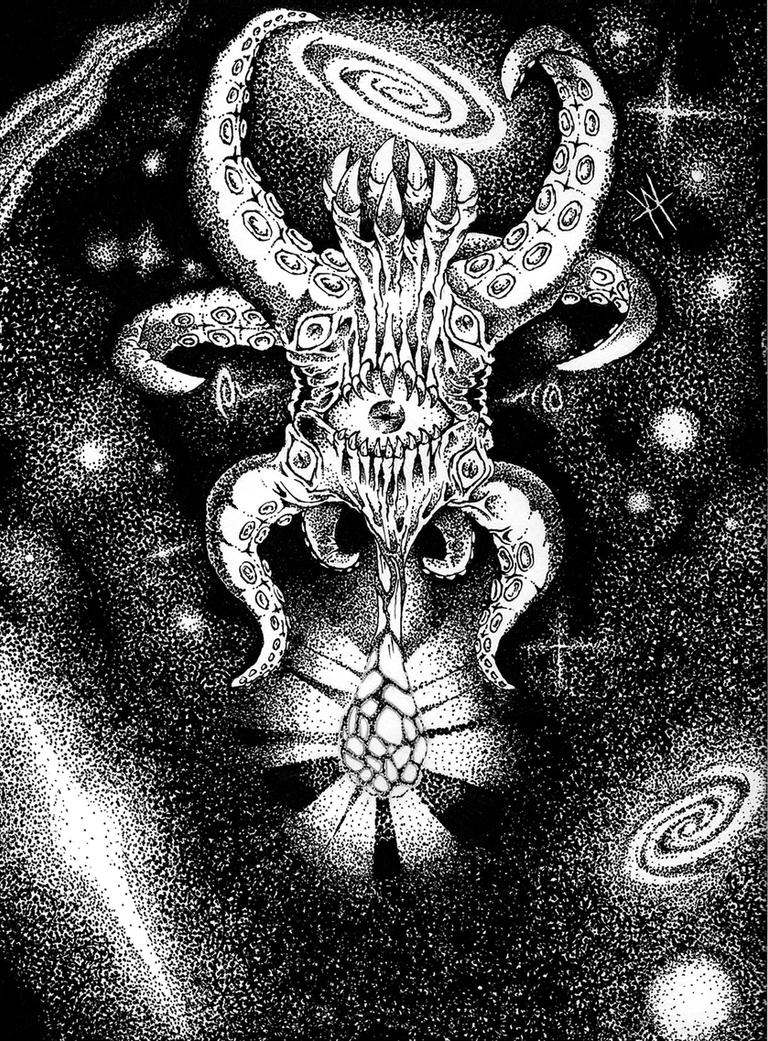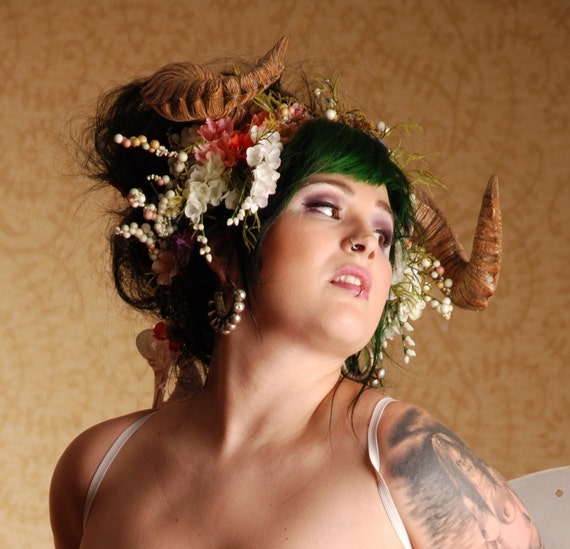Weekday:
dies Mercurii
Budha vāsara
Chwar Sham
Boomtime
Date:
Chaos 57, 3180 YOLD
Ab-ba-e 27
Moon of Stellar Clarity 5
Idi Februarius MMDCCLXVIIab urbe condita
Anno IVxxi æræ legis: ☉ in 8° ♓, ☾ in 3° ♒
7-Malinalli 1-Miquiztli 2-Tochtli
Anthesteria/Dystros 27 in the 1st year of the 698th Olumpiad
Parmouthi 7, 1412 years after the last Pharaoh
Mīna 27 in Vijaya, 5123 years since Śrī Kṛṣṇa returned to his eternal abode
25 Rabīʿ ath-Thānī, year 6763 in the Yezidi calendar
First, though: I'm still looking for a list of Nahua (Aztec) festivals that pins them to dates in the tonalpohualli or xiuhpohualli. I want this most especially for the Nahua festivals, as the count of days was their primary form of divination and any ritual calendar pegged to a calendar other than the Nahua one would, I fear, miss the point.
That being said, Q of The Elven Table asked for some more information about the Beast with Flowered Horns and the tzaddikim shel haShem. I also recently ended up writing a nice paragraph or so on why I have included Azathoth in my pantheon that also relates to the Beautiful Bithynian Boy and to the Zep Tepy bit of the ritual structure I posted earlier, so I thought I'd include that as well.
Damn, I can sound pretty fucking boring when I wanna, huh? Allow me to clear the air with a tiny bit of awesome:

And, as I promised for every day without festivals to celebrate, the divination of today (7-Malinalli 1-Miquiztli):
"Day Malinalli (Grass) is governed by Patecatl as its provider of tonalli (Shadow Soul) life energy. This day signifies tenacity, rejuvenation, that which cannot be uprooted forever. Malinalli is a day for persevering against all odds and for creating alliances that will survive the test of time. It is a good day for those who are suppressed, a bad day for their suppressors.
The thirteen day period (trecena) that starts with day 1-Miquiztli (Death) is ruled by Tonatiuh. This trecena signifies the vast cosmological forces at play in the lives of human beings. These 13 days are all influenced by transformative powers of unknown dimension, origin and intent. The days of this trecena often pass by unnoticed since they are not remarkable until the elementals turn their attention to this place, the first of the thirteen skies; when this occurs, though, the whole of the world changes. It is during these days that the song of the Old Ones may best be heard. These are good days to fulfill old obligations; bad days to go back on one's word."
Now a little word on inventing your own gods!
As the Beast with Flowered Horns once put it, willfully mangling a Quentin Crisp quotation: "We all come into this world, not existing. Everything else is drag."
One of the issues that I have run into with other folk who profess an immanent view of divinity and body primacy is an enshrinement of biological essentialism. If, they think, divinity is entirely here and if, they think, we should listen to biological processes and our own bodies first and foremost and if, <judgmental muppet>they don't think (cause this is the part where they haven't done the work)</judgmental muppet>, what is divine knows what is best for us, then obviously we can derive what is right and proper from base biological facts. mup takes a differnt view, and all three(+) of the deities has something to say about that.
Hmmm, maybe I should start with Azathoth, then . . .The blind idiot god at the Center of the universe.

It's (part) of why I often tell the cosmogony with another of my gods, Antinous, as the "creator". Antinous, see, was a verifiable, historical being BEFORE he created the worldand the history in which he lived. At the Center of the universe, at the bottom and beginning of all causal chains, is recursion. All sets are defined by their elements. Things are caused by their own effects. Cycles are the truest causa causans, recursion the primum mobile. If this is at the Center of things, what better image for that than Azathoth, the blind idiot god among the nuclear chaos?

The tzaddikim shel haShem (the saints of the Name) are parts of the soul. Small little, fairy parts of your soul, which is why they must be discussed in terms of groups rather than individuals. There are so many of them. They are part of your soul, but they are also not yours. They exist at your skin, at your ixtli (your face -- your character, how pwople can know you), at the borders and boundaries and crossroads between Self, Other, and All. In mup, we call those the lands of Just, Or, and And, respectively, and each is ruled by a guru-archetype (in order: none, the bimbo, and the autist).
You have one group of tzaddikim shel haShem for each of your names. That's one reason why muppets make such a practice of collecting names. I, for example, have the situation saints, the sad saints, the wave saints, the silly saints, the bimbo saints, the craft saints, the princess saints, the reptilian saints, the weird saints, and the whole saints. Everyone has the wild saints, which are the saints of all the names you have not yet acquired. All of these saints are what does the work of your magick in the mup conception. Their acting is your yollotl (your heart, the part of you that desires and moves), but at the same time remember that they are not fully you. They're also everyone and everything else, but that's a whole other post on mup's queering of the Self.
Can you spot the pun in the name of these gods?

The Beast with Flowered Horns is what you/we already are and what all this spiritual work is intending to achieve. The Beast with Flowered Horns is the muppet standing in eir power, possessed by all the mup gods, with eir tzaddikim shel haShem dancing and playing on eir skin. The Beast with Flowered Horns is the accidental active, mindful, and intentful presence and participation in the experiencing of things. The Beast with Flowered Horns is that quality which is common between imagination and Will. The Beast with Flowered Horns prefers the fairy pronouns fey, fem, fear, and fierce.
Fey might be the same or similar to the kia; more research is needed.
Boring? Not a bit. Thanks for reminding me about my ancient foodblog. Maybe I'll upload some more food maybe. But what is this about mup's queering of the Self? I am intrigued.
ReplyDelete